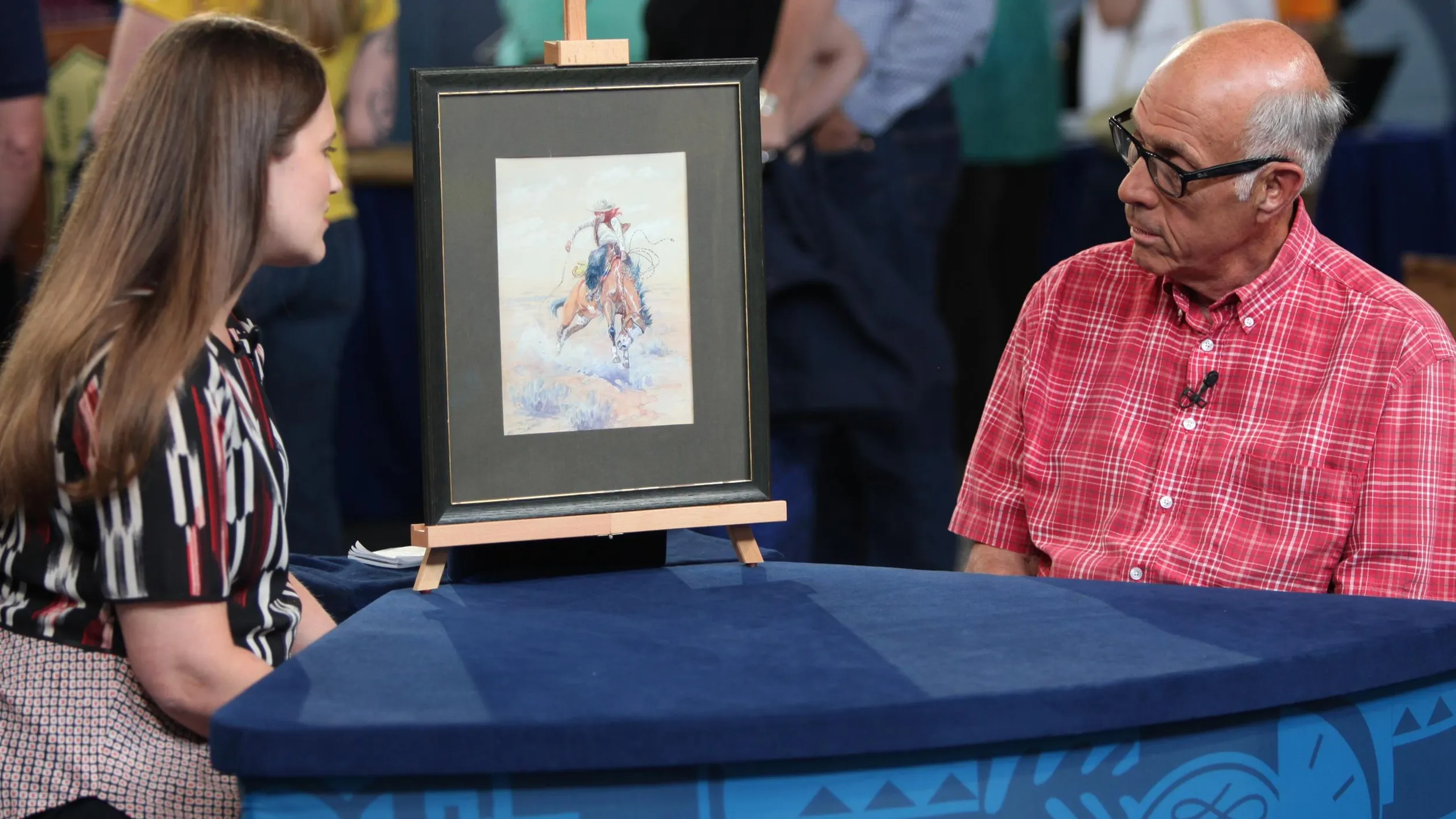GUEST: I was helping someone clean out a house. The bank had obtained this house through a foreclosure because it was in disrepair. They were throwing things in the dumpster, and because I don't like to throw things away unless I know what they are, I crawled in the dumpster and found a lot of things. Most of it I donated, but this I decided to keep because it was so unusual.
APPRAISER: How long ago was that?
GUEST: About eight years ago.
APPRAISER: It's a letter done in 1881. It is from one Indian chief to another Indian chief. But the subject material, tell me a little about that.
GUEST: Well, what I gathered was it was one Indian chief kind of telling the other Indian chief to basically behave himself because there was killings going on and he wanted it to stop.
APPRAISER: One of the issues with reading it is that he could write English, the chief, but as you read it, you realize that it was sort of a little bit circular. He starts off writing to this one chief, who was a Washoe, and obviously one of the big chiefs and very important, Captain Jim. They referred to the chiefs as captains because they were appointed captains or named captains by the United States.
GUEST: Mm-hmm.
APPRAISER: This Captain William, Chief William…
GUEST: Yeah.
APPRAISER: …is writing to Chief Jim.
GUEST: Mm-hmm.
APPRAISER: Saying essentially that Chief Joe wants to kill Annie, which is a woman, and he doesn't want him to.
GUEST: Right, yeah.
APPRAISER: And he's trying to broker peace. But at the same time, when you read through this, he's talking about that one of the Indians was drunk, one of them was misbehaving. And you get into this area here, he's saying one of the Washoe killed 12 members of another Indian's family.
GUEST: Yes.
APPRAISER: Well, it's fascinating to read through that. And then he's saying, "Well, you were supposed to make reclamation, you were supposed to pay."
GUEST: Right, you were supposed to pay.
APPRAISER: "You haven't done that, but I'm willing to overlook that." Then he's saying that she just wants to go to home to her family in Reno, because where the Washoe were was in California…
GUEST: Mm-hmm.
APPRAISER: …up near the border of Nevada and so on.
GUEST: Mm-hmm.
APPRAISER: And he's saying, "Look, this is what Captain Joe wants. "Could you talk to Captain Joe? I don't want to be aggressive; I want peace. I've let you fish in our streams, I haven't killed anybody." And then he says, "But," and this is the part that gets you. It's almost he's saying, "Well, if you do issue the order to kill her," in other words, put the hit out on her…
GUEST: Right.
APPRASIER: "I want you to pay me something.”
GUEST: Right! I know.
APPRAISER: “You've got to pay me some money." First of all, letters like this are incredibly rare. One Indian chief to another Indian chief is very rare. But actually talking about negotiations, killings, reparations, payments, they just don't show up. The Washoe are a tribe that is highly collected. If I were to conservatively estimate this letter, I would say $2,000 to $3,000…
GUEST: Hm.
APPRAISER: …Very, very conservatively.
GUEST: Wow.
APPRAISER: But it would not surprise me in the right setting that this might sell, retail, $5,000 to $10,000. Wouldn't shock me at all.



